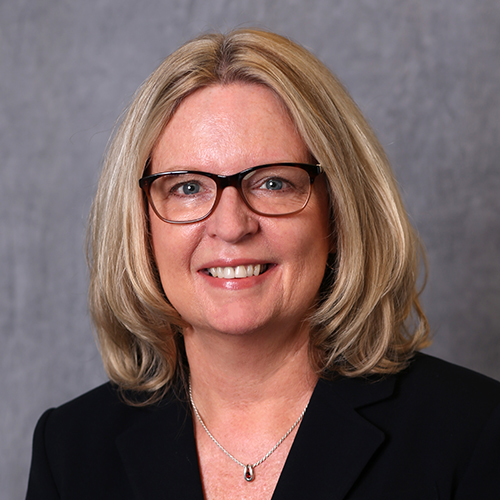My recent article covered three key financial challenges seniors face – housing, debt and healthcare – and today, I’ll break down three more key challenges: outliving funds, fraud and the job market.
While these challenges are extremely prevalent and can cause much distress, awareness and preparation are key to managing and improving your financial situation.
Seniors Outliving Funds
The number one concern regarding retirement expressed to financial advisers is how to maintain enough money to live the lifestyle one is accustomed to and make it last a lifetime. Many retirees plan to rely on Social Security benefits to fund their living expenses, although these funds only end up representing about 33 percent of their necessary income.
Another concern is the future financial status of Social Security. Investments in the stock market made when a long-term investment made sense, are now more volatile and may conflict with a general risk-averse state of life. At the current rate with no change in the program, benefits are expected to be depleted by 2033, as the number of workers paying into the system by 2035 will decrease from 2.8 workers per beneficiary to 2.3. Considering that the life expectancy of a 65-year old is now 20 more years – up from 14 in 1940 – there appears to be valid reason for concern that Social Security funds will run out.
The most obvious solution is to have other savings to rely on. However, individuals with other savings have challenges too. Interest rates on bank CDs, money market accounts, savings accounts and bonds have dropped to such a low they aren’t generating enough monthly income to live on. Still, many seniors prefer these low-yielding fixed-income investments as they are FDIC-insured and safe from market fluctuations.
Finally, many seniors become straddled with added debt when attempting to help loved ones with their financial needs. This can create a long-term or permanent strain on a limited budget. Lending, giving money, or co-signing on a loan creates a shortage that can impact a senior’s daily living expenses and drain resources earmarked for retirement. Sometimes delivering a message that, as much as you’d like to help, it’s just not possible now, is best for your own financial situation.
As in any stage of life, a good balance is key, but the main focus as one gets closer to retirement should be on preserving principal. A trusted financial advisor can assist with strategies to help in reaching retirement goals, but most agree that you will benefit by pumping as much as possible, including “catch-up” contributions, into an IRA and 401(k) before retiring.
If you’re already retired and are no longer able to contribute to a retirement account, speak to a financial advisor to understand how to get the most out of your account.
Fraud
While technology has added many benefits to our lives, it also comes with certain risks, such as increased risk of online and over-the-phone scams. Elder financial abuse has increased to alarming frequency and damages are now estimated to total around $2.9 billion per year, not including indirect costs relating to health and legal damages. Seniors can be victims of a multitude of scams orchestrated by strangers, acquaintances or family members. These can include fraud by theft, phone, mail or computer and all lead to financial loss, emotional and physical distress, and time and costs associated with cleaning up the damage. Criminals have gotten shrewder and a high percentage of financial fraud isn’t traceable or recoverable, so the time to stop it is before it starts.
Regardless of how legitimate it seems, never give personal or financial information to anyone who contacts you. If you think you’ve been scammed, it’s important to report all compromises or suspicious circumstances to your financial institution immediately.
Seniors who are threatened by a stranger or family member in order to receive money often comply in order to avoid a confrontation or harm. Fraudsters reach out with many intimidating tactics as a ploy to get to their money, such as claiming to harm a beloved grandchild. The threat is real for these victims and they continue payments until they either run out of money or someone intervenes on their behalf. Banks are now trained to look for this activity and can assist by stopping the transactions and working through the next steps to recover losses and protect their remaining assets.
Finally, some of the tried and true basic security principals still apply today:
- Don’t leave mail in the mailbox
- Review bank statements
- Have check orders sent to the bank
- Keep blank checks and important paperwork locked up
- Shred discarded paperwork
- Closely guard purses and wallets
- Limit cash or credit cards carried
- Change and secure passwords
- Check all three credit reports annually for discrepancies
With dedicated effort, it’s possible to significantly reduce the likelihood of falling victim to financial fraud and keep assets intact.
Job Market
An appealing aspect of retirement to many is the ability to step down from a daily work routine. However, more seniors are choosing to continue employment in some fashion to stay active, boost savings or have more discretionary spending dollars. Others find they must continue working to supplement Social Security income. Using the extra money earned can help pay down debt or purchase supplemental health insurance. Businesses often opt to hire younger employees for lower wages, hurting the job prospects of seniors. But once hired, seniors are often retained by businesses for their strong work ethic and valued experience.
If something like this is of interest to you, there are resources available to help seniors find employment. The Senior Community Service Employment Program (SCSEP) helps low-income, unemployed individuals aged 55 and over find work. Statistics from this program indicate besides the benefit of helping to pay bills, 88% of seniors report the same or better health, and 72% report a better outlook on life while working. This program even teaches skills needed in today’s marketplace, such as computer technology, to help seniors be placed in open positions.
Working adults receiving Social Security income need to be aware of whether earnings received in a given year exceed the base amount established by the IRS. There are limits to what can be earned before you are required to file a tax return, and even if you haven’t exceeded the maximum allowed or have only unearned income, you may still owe tax. Consult your tax advisor for guidance.








 Equal Housing Lender. SBA Preferred Lender. NMLS #440379
Equal Housing Lender. SBA Preferred Lender. NMLS #440379